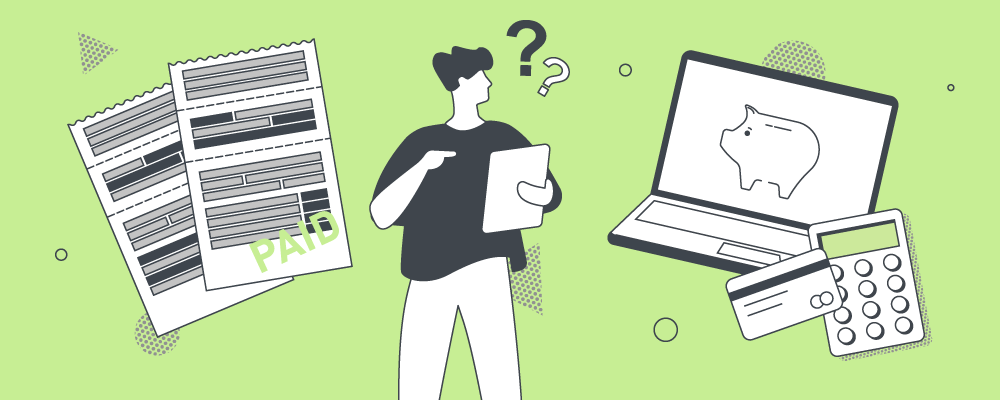
Taking your first step onto the property ladder is a big moment, but it’s easy to make costly mistakes along the way.
In this guide, we’ll walk you through some of the most common first time buyer mistakes and share some useful tips to help you feel more prepared.
1. Not securing a mortgage agreement in principle (AIP)
Before you start house hunting, you’ll need to secure an AIP. While it isn’t a formal mortgage offer, it shows sellers that you’re a serious buyer and helps you understand what you can afford.
You can apply for an AIP through your lender or with help from a mortgage adviser. Acquiring one is often quite straightforward. You’ll need to provide basic details about your income, outgoings and deposit, and you can usually expect to receive it within a few hours to a couple of days.
When does an AIP expire?
An AIP is typically valid for 30 to 90 days, depending on your lender. If it expires before you’ve applied for a mortgage, you can renew it. You’ll need to update your financial information to confirm your circumstances haven’t changed. Your lender may also need to run a new credit check, but this doesn’t typically affect your credit score.
2. Setting an unrealistic budget
Many first time buyers focus only on the property price and deposit, overlooking other key costs. These can include legal fees, property surveys, mortgage arrangement fees, buildings insurance and moving expenses. It’s also worth budgeting for council tax, set-up fees for utilities and any immediate repairs or furnishings.
You can learn more about the costs of buying a home in our comprehensive guide.
Not saving for unexpected costs
An emergency fund of around 10% of your purchase price can provide a useful safety net, leaving room for any unexpected costs and helping reduce financial pressure during your move. This can also show lenders that you’re financially prepared.
3. Choosing the wrong mortgage
It’s common for first time buyers to use their current bank or the first mortgage lender they speak to, but this can mean missing out on more affordable mortgage options. Rates and terms can vary significantly and affect your monthly repayment costs, so it’s important to compare different lenders to find one that suits your needs and budget.
Choosing a suitable mortgage helps you stay in control of your finances throughout your homeownership journey, so do your research and speak to different lenders before you decide.
Types of mortgages
There are different types of mortgages, but fixed-rate mortgages are usually the most popular. They offer predictable monthly payments, making budgeting easier.
Tracker mortgages, while not as common, are linked to the Bank of England’s base rate and tend to appeal to buyers when interest rates are low or expected to fall. While you may start with lower rates, these can change over time. Consider how long you plan to stay in your home and whether you can afford any payment increases.
4. Making too many credit applications
One mistake many first time buyers make is applying for new credit just before securing a mortgage.
Soft credit checks, which take place when you apply for an AIP, don’t usually affect your credit score. However, hard credit checks for things like loans, credit cards or car financing are recorded on your credit file. Too many hard credit checks in a short time can affect your score and make lenders more cautious about offering you a mortgage.
5. Skipping property surveys
Some first time buyers skip surveys to save money. However, this can lead to costly surprises down the line.
Surveys can reveal any issues with the home you’re interested in and help you make informed decisions. If any problems are found, you may be able to negotiate a lower price or request that the seller carry out repairs.
Types of surveys
There are three main types of survey:
-
RICS Home Survey – Level 1
-
RICS Home Survey – Level 2
-
RICS Home Survey – Level 3
The ideal one for you will depend on factors like the age and condition of the property. Read our helpful guide on surveys to learn more about what each type offers and how much they cost.
6. Overlooking insurance
Buildings insurance is often required by your mortgage lender, as it covers the cost of repairing or rebuilding your home in case it's damaged. Contents insurance, while not usually required, covers belongings in your home. Look for policies that offer the right level of cover at an affordable rate.
You may also want to explore mortgage protection and life insurance. Life insurance can help your loved ones repay the mortgage if you pass away, while mortgage protection insurance covers your payments if you’re unable to work due to illness, injury or redundancy. It can be a useful way to protect you and your loved ones.
Ready to buy your first home? Explore our range of brand-new homes today.
Our Sales Advisers are on hand to guide you through your homebuying journey.


